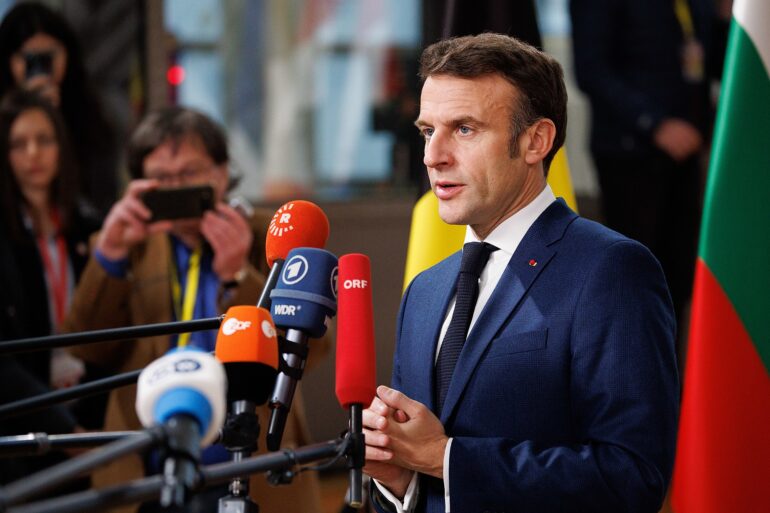French President Emmanuel Macron on Friday reappointed Sébastien Lecornu as prime minister, reversing a resignation he tendered less than a week ago, a decision that underscores the continuing political paralysis in Paris.
Macron’s choice to reinstall Lecornu, a close ally, highlights the narrowing options for a president struggling to form a government capable of passing a budget and surviving a no-confidence vote in the fractious National Assembly.
The week began with Lecornu stepping down after only one month in office, citing disagreements with conservative lawmakers over the composition of his cabinet.
Conservative Interior Minister Bruno Retailleau publicly said Lecornu had lost his trust after naming a new defense minister from Macron’s centrist ranks without prior consultation.
Lecornu, in turn, attributed the dispute to Retailleau’s personal ambitions. “I am now firmly convinced that the new team must be completely disconnected from presidential ambitions for 2027, because ultimately the situation is already difficult enough,” Lecornu said in a television interview before his reinstatement.
Macron’s decision reflects a calculated judgment that Lecornu remains the best candidate to bridge a centrist-conservative coalition that recently fell apart. Lecornu now faces the same formidable challenge he had a month ago: constructing a parliamentary majority capable of passing a budget that narrows France’s deficit, which reached 5.8% of GDP last year, nearly double the European Union’s limit of 3%.
At the center of legislative tensions is Macron’s controversial pension reform, which gradually raises the retirement age from 62 to 64. Leftist lawmakers have demanded suspension of the measure as a precondition for budget support.
Suspending the reform would risk alienating Macron’s centrist and center-right allies and increase the deficit by an estimated 3 billion euros in 2027, potentially climbing to 13 billion euros by 2035, according to the French state auditor.
“With the center-right and parts of Macron’s own centrist alliance in open revolt and the moderate left still dissatisfied, there is no obvious parliamentary coalition to support a new prime minister,” said Mujtaba Rahman, head of Europe at Eurasia Risk Consulting.
Lecornu also faces opposition from the far-left and far-right. Jean-Luc Mélenchon, leader of France Unbowed, is calling for Macron’s resignation, while Marine Le Pen, whose National Rally holds the largest number of seats in the lower house, has pledged to block any new government until Macron dissolves parliament and calls fresh elections.
In an effort to negotiate with major parties, excluding the far-left and far-right, Macron proposed delaying the next increase in the retirement age until 2028, after the next presidential election.
The suggestion was rejected by leftist lawmakers, who accused the president of attempting to maintain policies that have previously toppled governments. “If there’s no change of direction,” said Olivier Faure, head of the center-left Socialist Party, “then we will immediately vote no-confidence. It’s as simple as that.”
France’s political turbulence stems from snap elections called by Macron in 2024 that failed to produce a clear majority. The National Assembly is now divided into three broad blocs: left-wing parties ranging from the far-left to the Socialists, a center-right coalition consisting of Macron’s party and allied conservatives, and Le Pen’s far-right bloc.
Analysts warn that even new elections are unlikely to resolve the deadlock, leaving Macron’s government navigating a narrow path to maintain stability while attempting to implement his policy agenda.
[READ MORE: Trump Administration Launches $4.5 Billion in New Border Wall Projects Under GOP’s “One Big Beautiful Bill”]





